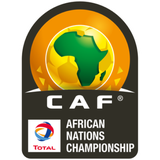
FIFA kicks off process to agree match calendar from 2024
ZURICH (AP) — FIFA began the process Thursday of sorting out how to fit international games into soccer's congested schedule from 2024, with complex talks expected to find agreement with clubs, leagues and player unions.
The so-called International Match Calendar decides the dates for national team games — when clubs must release players — for at least four years ahead. That includes the World Cup, continental championships, qualifying campaigns and friendlies.
Figuring out the next four-year calendar promises to be tricky as European clubs push UEFA toward expanding the current Champions League format.
FIFA has added to the congestion by creating a 24-team Club World Cup that kicks off in June 2021, and committing more players to a 48-team World Cup in 2026.
FIFA said it set up a working group of officials representing national federations, clubs, leagues, and the global players' union FIFPro. It will be chaired by Victor Montagliani, a FIFA vice president who leads North American soccer body CONCACAF.
“It’s incredibly important," Jonas Baer-Hoffmann, the union's general secretary, told The Associated Press in a recent interview. “On the elite level, you see that the amount of load the players are carrying is simply putting players to the brink.”
The current international calendar runs through December 2024. That's the season when Europe’s top clubs want to overhaul the Champions League and increase their guaranteed number of games.
There are also conflicting interests from FIFA's member federations and the player's union.
The federations want to retain the number of revenue-earning games played by their national teams — currently at least 18 spread over two years. Those games are currently played in double-header weeks, but clubs will push for more games to be be played in fewer call-up periods.
“If we can rebundle this in any way possible it would be very good for us,” European Club Association leader Andrea Agnelli, the Juventus president, said last year.
FIFPro seeks measures to save players from burnout, including with protected off-season and mid-season breaks.
By 2028, continental events played in odd-numbered years — the African Cup of Nations, Asian Cup, CONCACAF Gold Cup — could come into alignment with the European Championship and Copa America which are already on the 2020-2024 cycle.
That would please European clubs who want stability in knowing when players will be away with national teams. It also clears June in odd-numbered years for FIFA competitions like the Club World Cup.
FIFA gave no timetable for the working group to report back to its Stakeholders Committee, which met Thursday in Zurich.
Also at the meeting:
— The panel supported the principle that “domestic matches should take place on the territory of the member association concerned.” Spain’s La Liga has tried to organize games in Miami but FIFA resisted the move. Rules will now be prepared for approval by FIFA’s ruling council.
— FIFA will work to ensure that tens of millions of dollars from transfer fees will go back to clubs which train players earlier in their careers. An extra 1% levy on fees will be held by FIFA and allocated as compensation to the clubs which nurtured the player.
FIFA hopes a system of categorizing clubs and calculating training costs will take effect in 2022.
— From July, a proposal for limits on the loan system should begin to restrict clubs stockpiling players.
Clubs will be limited to eight international loans, in our out, per season. The limit will be six by the 2022-23 season. There will also be a maximum of three loans in and three loans out between the same clubs.
